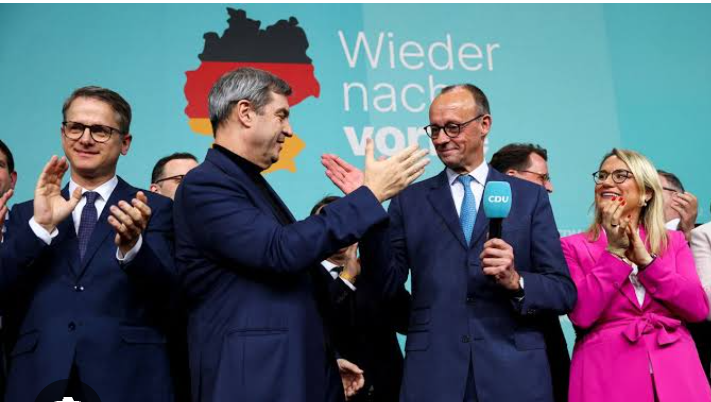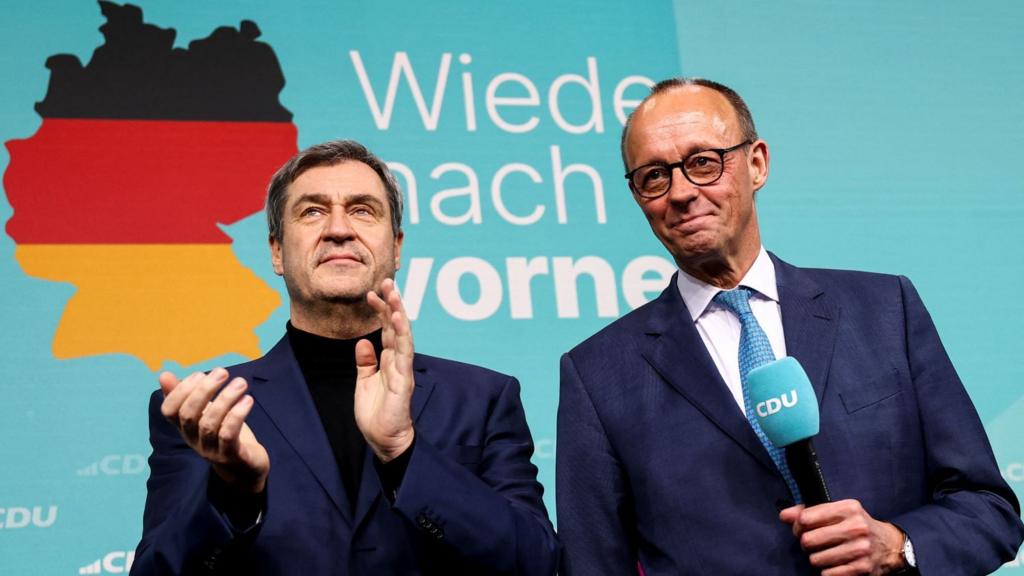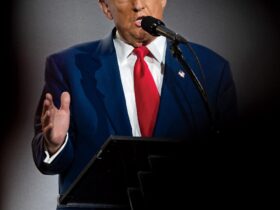Germany’s conservatives have won the national election, while the far-right AfD achieved its best-ever result, securing a historic second-place finish.
Germany’s opposition conservatives secured victory in the national election on Sunday, positioning Friedrich Merz to become the country’s next chancellor.
Meanwhile, the far-right Alternative for Germany (AfD) achieved its best-ever result, coming in second, according to projected results.

Following a campaign marked by violent attacks and interventions from US President Donald Trump’s administration, the conservative CDU/CSU bloc won 28.7% of the vote. The AfD followed with 19.8%, according to projections by ZDF public broadcaster.
Addressing supporters, Merz, 69, expressed confidence in the task ahead. “Tonight we will celebrate, and from tomorrow we start working. The world out there is not waiting for us,” he said.
READ MORE:Those Who Criticised IBB Now in Power, Leading Crackdown on Opposition—Oseni Rufai
Despite emerging as the largest bloc, the CDU/CSU recorded its second-worst post-war result, leaving Merz in a challenging position as coalition negotiations begin. It remains unclear whether he will need one or two partners to form a majority. A three-way coalition could prove cumbersome, potentially hindering Germany’s ability to project clear leadership.
All mainstream parties have ruled out working with the AfD. Chancellor Olaf Scholz’s Social Democrats (SPD) suffered their worst defeat since World War II, securing only 16.4% of the vote.
The Greens obtained 12.3%, while the far-left Die Linke party received 8.9%. The pro-market Free Democrats (FDP) and the newly formed Sahra Wagenknecht Alliance (BSW) hovered around the 5% threshold needed to enter parliament.
Merz, who lacks prior government experience, has pledged to restore Germany’s leadership in Europe and strengthen ties with key allies. He supports, albeit conditionally, sending longer-range Taurus missiles to Ukraine—a move Scholz’s government previously avoided—and remains committed to Europe’s NATO membership.
A staunch economic liberal, Merz has steered the CDU/CSU further to the right, marking a stark contrast to former Chancellor Angela Merkel, who led Germany for 16 years. His coalition talks are expected to be fraught with difficulties, particularly given deep divisions over migration policy and the AfD’s growing influence in German politics.
Follow Parallel Facts on WhatsApp Channel:https://whatsapp.com/channel/0029VaCQSAoHgZWiDjR3Kn2E









Leave a Reply